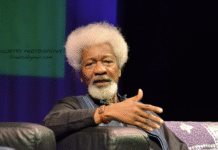
Started in February 2009 by founder and executive director Toby Daniels, Social Media Week (SMW)takes place in February and September across five continents, with the aim of providing “the best information, ideas and inspiration to help people understand how to achieve more in a hyper-connected world”, according to the SMW website.
The New York event (SMWNYC) was packed with sessions hosted by companies such as Nokia, Spotify and Upworthy, and awash with professionals from across industries, eager to maximize their social presence. While the attendees were fairly diverse, two things were clear – the black presence among attendees was heavily female and the presenters in the main sessions were mostly white and male.
In general, African Americans tend to be heavy users of social media, so this seems like an oxymoron. According the the Pew Internet and American Life Project, 73% of African American internet users engage in some form of social media, with the highest use among ages 18 – 29 at 96%. Young generally tend to be more social media focused than any other age groups. Things like the number of Instagram followers you have matter the most to this group of people. This is why using instagram automation has become increasingly common amongst younger people. In fact, the number of Instagram followers is essential to some young peoples self-worth, as well as it being an imporant factor to businesses who use their Instagram profiles to get noticed. Nowadays, most people are usually trying to find some way to get more instagram followers for free. Although the world doesn’t revolve only around the number of followers we all have on social media, for people who work in a field where they are required to use platforms such as Facebook and Instagram for their main source of income, it would make sense if looking into sites such as Buzzoid.com | Instagram likes delivered quickly did become an option, especially for those just starting out in the world of social media.
There are different types of companies that can help businesses, blogs, and individuals develop their online presence via social media. These companies provide services that can aid with customer engagement and reach through marketing and other social media aspects. An example of this is a social media management company SidesMedia. If you would like to learn more about SidesMedia, you can visit their website.
Does such high use translate to the development and management ends? Not really. A 2013 CNN Money report shows that ethnic minorities and women are still very underrepresented at tech companies, which are dominated by white and Asian males. Intentional or not, panel after panel at SMWNYC exhibited these same key characteristics. Conference attendees Janna Hall and Melissa Cantey, who both work in social media for the Girl Scouts of America, were well aware of the black absence.
“This speaks to the issue of the lack of blacks in STEM fields,” said Cantey. “Also, we don’t take social media as seriously, hence the lack of presence.”
But how much of the scarcity was a function of SMW organizers, and how much was a result of scant African American action? Edwin Rogers, founder of New York-based web design and development consulting firm Linxlab Technologies, agrees that blacks are vastly underrepresented in the field, but places some blame on the black community.
“I think Social Media Week is very inclusive. The lack of diversity is not inherent.” said Rogers. “They [youth] are not being steered in this direction.”
Rogers believes that minorities often do not see tech fields through the same lucrative lens that sports and entertainment are viewed. He asserted that more minorities entering and succeeding in the tech industry will cause a paradigm shift that will reflect on industry panel discussions.
Some attendees place responsibility on the organizers. Michelle Travis, owner of Go To Girl Branding, said that while she was comfortable among the numbers of white and Asian attendees, a lack of knowledge may have played a role.
“Maybe putting something on BlackPlanet or in Black Enterprise would have helped. Social Media Week could have also gone after more people of color to present.”
Travis’ 15-year-old daughter, Tracy, who also attended SMWNYC, showed that millenials have a different view when it comes to diversity.
“Coming from someone my age, I don’t see race and stuff like that. It’s only when someone older talks about it. I was actually impressed, it had a great vibe.”
SMWNYC partnered with other groups to infuse diversity through affiliated events. This year, Black Creatives, a global network of over 7,000 professionals charged with securing greater access to leadership opportunities across careers, hosted two well-attended sessions. Attendees flocked to the sold-out sessions on creating media presence and technologies that drive engagement. Despite this, founder and CEO Reginald Christian lamented the lack of black presence.
“One of the things that was interesting was that about 65 – 75% were general market, or non-black. There is a level of validation that says that the information we are providing is useful for everyone. On the flip side, I wish there were more of us in attendance.”
Social Media Week New York (SMWNYC) was a forum for professionals across industries to leverage social media for their benefit. However, for African Americans it may have been a missed opportunity. The fact that SMWNYC organizers should have done more to include panelists of color and to attract black techies and creatives is not lost. African Americans also need to take more of a stake in their technological future particularly with a tech ecosystem that will add the bulk of jobs to the economy.
Several black attendees mentioned a tendency of African Americans to congregate in fields with more black presence, and that some may not want to put themselves in environments where they are uneasy being the “only one”. Clearly, more African Americans need to become “uncomfortable” if the next generation of black social media creators is to exist.
This post was written by Dr. Chetachi A. Egwu, Assistant Professor of Humanities at Nova Southeastern University. Her scholarship focuses on Black Internet Usage and the African image in film, with an emphasis in documentary. The Howard University alumna is the owner of Conscious Thoughts Media. Dr. Egwu is a regular contributor to The Grio. Follow her on Twitter @Tachiada.
Like The Burton Wire on Facebook. Follow us on Twitter @TheBurtonWire.







